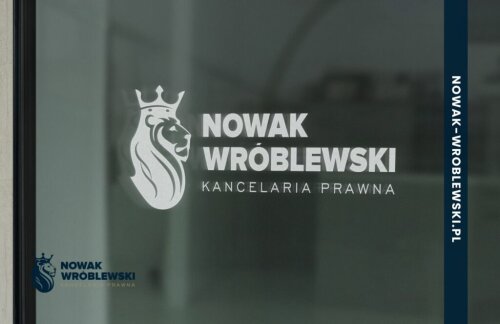Best Structured Finance Lawyers in Tarnobrzeg
Share your needs with us, get contacted by law firms.
Free. Takes 2 min.
List of the best lawyers in Tarnobrzeg, Poland
1. About Structured Finance Law in Tarnobrzeg, Poland
Structured finance in Tarnobrzeg combines local business needs with EU and Polish financial regulation to raise funds using assets or receivables as collateral. In practice this often means securitisation structures, special purpose vehicles (SPVs), and related documentation crafted for Polish and European markets. Local practitioners in Tarnobrzeg typically work with national law firms that understand both EU securitisation rules and Polish civil and contractual law.
Because Tarnobrzeg sits within Poland and the EU single market, structured finance deals must satisfy requirements set by the EU Regulation on securitisation and by Polish authorities such as the KNF. An experienced legal counsel can help navigate documentation, cross-border considerations, tax aspects, and ongoing compliance for issuers, SPVs, and investors. If you are a Tarnobrzeg business exploring asset-based funding, you should engage counsel early to map structure, risk, and regulatory steps.
Regulation (EU) 2017/2402 on securitisation establishes a common framework for securitisation across the EU, including due diligence, risk retention, and disclosure requirements.
Source: Regulation (EU) 2017/2402 on securitisation.
2. Why You May Need a Lawyer
A Tarnobrzeg business or investor considering structured finance may encounter complex legal and regulatory issues that require specialist advice. Below are concrete, real-world scenarios where legal counsel adds value.
You want to set up an SPV in Poland to securitise a portfolio of Tarnobrzeg receivables. A lawyer can draft transfer agreements, SPV constitutive documents, and governance terms that satisfy EU rules and Polish contract law.
You are negotiating a securitisation transaction with a Polish bank and foreign investors. You need counsel to align the term sheet with the securitisation framework, risk retention, and disclosure obligations.
You must ensure compliance with the EU Securitisation Regulation and KNF expectations when issuing notes backed by local assets. A lawyer can coordinate due diligence and documentation review.
Your firm must conduct cross-border securitisation involving Tarnobrzeg assets and an investor in another EU member state. You will need advice on cross-border tax, currency, and regulatory issues.
You face regulatory scrutiny or reporting obligations from the Polish Financial Supervision Authority (KNF) related to a securitisation program. Legal counsel can prepare responses and corrective actions.
You are restructuring a securitisation due to a change in asset mix or borrower profile. An attorney can help with amendments, consent processes, and risk retention adjustments.
3. Local Laws Overview
The framework for structured finance in Tarnobrzeg relies on EU law implemented in Poland and supplemented by national contract and financial regulation. The key laws and regulations you should know include the following:
Regulation (EU) 2017/2402 on securitisation
This regulation provides the EU-wide framework for securitisation, including definitions, due diligence, risk retention, transparency, and investor disclosure. It is directly applicable in Poland and governs how securitisations must be structured and reported. The regulation became applicable on 1 January 2019, with ongoing supervisory guidance from EU and Polish authorities.
Source: Regulation (EU) 2017/2402 on securitisation, and related EU supervisory materials from ESMA.
Kodeks cywilny (Polish Civil Code)
The Polish Civil Code governs contracts, the assignment of claims, and security interests that often arise in securitisation transactions. It provides the framework for transfer of receivables to an SPV, contract formation, and enforcement rights. Lawyers commonly rely on the Civil Code to validate securitisation mechanics and ensure enforceability of transfers and guarantees in Poland.
For more on how Polish contract law interacts with securitisation structures please consult the Civil Code through official Polish legal resources and government guidance listed below.
Prawo bankowe (Banking Law)
Banking Law regulates banks and credit institutions involved in securitisation arrangements, including sponsor obligations, lending standards, and supervisory expectations. In Poland, securitisations are frequently tied to bank involvement for funding, liquidity, and regulatory compliance. Counsel helps ensure alignment with banking rules during structuring and post-issuance stages.
For authoritative guidance on these areas see official resources such as the Polish Financial Supervision Authority and EU financial market portals linked in the next section.
The securitisation framework in Poland follows EU rules and is supervised by KNF through local interpretations and guidance for SPVs and investors.
Source: Komisja Nadzoru Finansowego (KNF), and EU securitisation materials at European Commission.
4. Frequently Asked Questions
What is securitisation and why would a Tarnobrzeg business consider it?
Securitisation pools receivables or other assets and issues securities backed by that pool. It can provide liquidity, diversify funding sources, and improve balance sheet metrics for Polish issuers and SPVs.
How do I start a securitisation project in Tarnobrzeg?
Begin with a needs assessment, gather asset data, and consult a structured finance lawyer to design an SPV, transfer agreements, and a funding plan aligned with EU and Polish law.
What is a special purpose vehicle and why is it used?
An SPV is a separate legal entity used to hold assets and issue securities. It isolates risk from the sponsor and provides a clean structure for investors and regulators.
What does risk retention mean in securitisations and who bears it?
Risk retention requires the sponsor or originator to hold a portion of the securitised risk. This aligns interests and enhances investor protection under EU rules.
How much does hiring a structured finance lawyer cost in Tarnobrzeg?
Fees vary by deal complexity and firm size, but typical upfront retainer ranges from several thousand to tens of thousands PLN, plus success-based or hourly rates for detailed drafting.
How long does a typical securitisation deal take from start to finish?
A straightforward domestic deal can take 6-12 weeks; cross-border or complex asset pools may require 3-6 months, depending on due diligence and regulatory reviews.
Do I need to be a Polish resident to securitize assets?
No, foreign investors can participate in Polish securitisations, but local compliance steps and documentation must reflect Polish and EU requirements.
What are the main differences between securitisation and traditional bank lending?
Securitisation transfers asset risk to investors via securities, often on a stand-alone SPV, while traditional lending keeps risk on the lender's balance sheet and may involve different disclosure and risk retention rules.
What documents should I prepare for a securitisation review?
Prepare asset data, borrower documentation, transfer agreements, SPV charters, governing documents, service agreements, and any existing risk retention statements.
What are the regulatory filing requirements with KNF for securitisation in Poland?
KNF oversight focuses on licensing, disclosures, and ongoing reporting for participants in securitisation. A lawyer can help ensure timely and accurate filings and responses.
What is the role of SPV in a Polish securitisation?
The SPV holds the asset pool, issues securities, and serves as the legal vehicle for the securitisation. It isolates risk and facilitates investor communications.
Can foreign investors participate in a Polish securitisation?
Yes, foreign investors may participate, provided compliance with EU securitisation rules and Polish regulatory requirements is maintained in documentation and disclosures.
5. Additional Resources
- Komisja Nadzoru Finansowego (KNF) - Poland's Financial Supervision Authority overseeing banks, insurance and capital markets, including securitisation participants. Official site: knf.gov.pl
- European Commission - Securitisation - EU framework and guidance for securitisation, including Regulation (EU) 2017/2402. Official page: ec.europa.eu
- European Securities and Markets Authority (ESMA) - EU level supervisory and consumer protection guidance for securitisations. Official site: esma.europa.eu
6. Next Steps
Define your objective and assemble asset data, including pool type, total value, and borrower profiles. Set a rough funding target and timeline within 6-12 weeks.
Identify a Tarnobrzeg or Podkarpackie-based lawyer or law firm with structured finance experience. Verify their Bar Council membership and recent securitisation work.
Schedule a formal consultation to discuss structure options, regulatory considerations, and a high-level cost estimate within 1-2 weeks.
Ask for a written engagement letter outlining scope, deliverables, fees, and a milestone-based plan. Confirm any potential cross-border issues.
Develop the initial SPV structure concept, including asset transfer mechanics, governance, and risk retention framework. Review with all key stakeholders in 2-4 weeks.
Draft and review core documents (SPV charter, transfer agreements, service agreements, and investor disclosures). Allow 4-8 weeks for drafting and changes.
Coordinate with regulators and counterparties for approvals, disclosures, and closing. Expect a 1-4 week closing period post-document readiness.
Lawzana helps you find the best lawyers and law firms in Tarnobrzeg through a curated and pre-screened list of qualified legal professionals. Our platform offers rankings and detailed profiles of attorneys and law firms, allowing you to compare based on practice areas, including Structured Finance, experience, and client feedback.
Each profile includes a description of the firm's areas of practice, client reviews, team members and partners, year of establishment, spoken languages, office locations, contact information, social media presence, and any published articles or resources. Most firms on our platform speak English and are experienced in both local and international legal matters.
Get a quote from top-rated law firms in Tarnobrzeg, Poland — quickly, securely, and without unnecessary hassle.
Disclaimer:
The information provided on this page is for general informational purposes only and does not constitute legal advice. While we strive to ensure the accuracy and relevance of the content, legal information may change over time, and interpretations of the law can vary. You should always consult with a qualified legal professional for advice specific to your situation.
We disclaim all liability for actions taken or not taken based on the content of this page. If you believe any information is incorrect or outdated, please contact us, and we will review and update it where appropriate.









